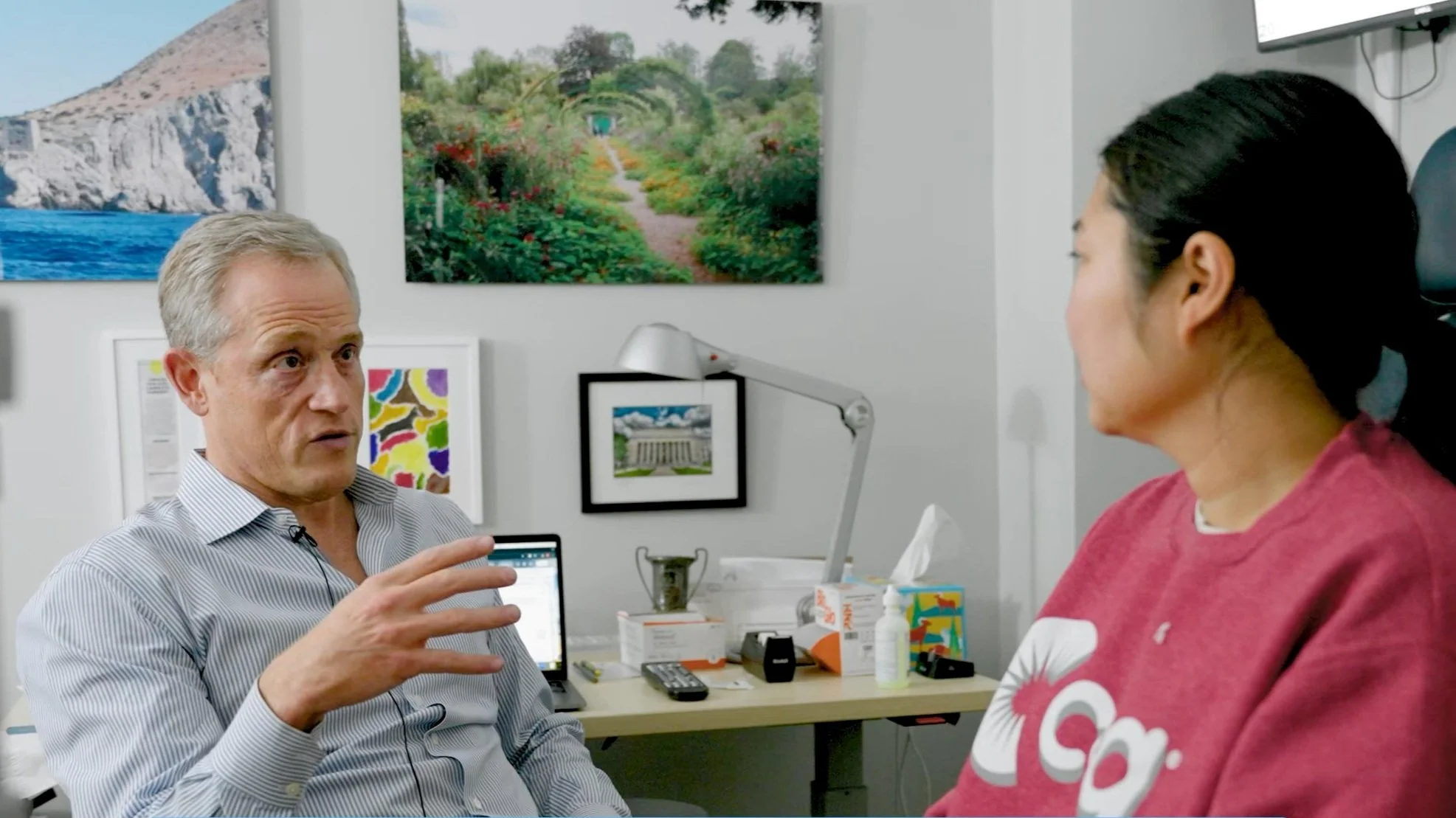Eye Care Tips for New Yorkers
A Few Pointers From a Commuting Ophthalmologist
If you live in New York, you probably don’t need to be told your eyes are tired… you already feel it.
Between screens, dry air, glare, and subway dust, I’m seeing more patients than ever dealing with digital eye strain, dry eyes, and general discomfort. I get it. I commute into the city every day from New Jersey, and I walk through Central Park each morning and evening. It’s my favorite part of the day, but even on that peaceful walk, my eyes can feel it after hours of work, screens, and city air.
So here’s what I recommend – not as a lecture, but as someone who’s in the same environment, looking for the same relief.
Now, let’s first review what NOT to do.
The Worst Offenders for Eye Health
Here are some bad eye habits I urge patients to break:
Sleeping in contacts (unless specifically approved): It drastically raises your risk of infection.
Rubbing your eyes: It’s a fast way to introduce bacteria and worsen dryness or allergies.
Skipping eye protection on sunny or windy days: UV and debris exposure add up over time.
Using old makeup around the eyes: Mascara and eyeliner can carry bacteria, so replace them regularly!
Ignoring screen strain: Waiting until your eyes are sore to take a break is too late. Make it part of your routine.
Even small tweaks to these habits can make a noticeable difference.
Here’s What You SHOULD Do for Your Eyes Instead
-
You don’t need to overhaul your entire lifestyle… just get the basics right!
Leafy greens (like spinach and kale), colorful fruits and vegetables, eggs, and oily fish are great for long-term eye health.
I also encourage patients to stay hydrated. Between indoor heat in the winter and AC in the summer, most New Yorkers are walking around mildly dehydrated. That makes dry eyes worse.
-
I see this every day: patients pushing through on too little sleep, eyes red and irritated by afternoon.
Your eyes need sleep to restore moisture, rebuild tear film, and reset from a day of constant focus.
Aim for seven or eight hours, and you’ll feel the difference… not just in your eyes, but in your focus and energy, too!
-
City glare can be brutal. Whether you're walking past glass towers in Midtown or heading out on a weekend run along the river, polarized sunglasses help cut down on brightness, protect against UV, and make it easier to see without squinting.
I wear mine nearly every day, even in the winter.
-
If you wear contacts, make sure your hygiene habits match your environment. I make house calls across the five boroughs, and I’ve seen firsthand how easy it is to slip into bad routines, reusing solution, skipping handwashing, stretching lenses too long.
Even in a clean apartment, NYC air carries grit, debris, and dryness that make contacts more irritating when they’re not handled properly. If you wear glasses, keep a microfiber cloth handy and avoid using your sleeve (we’ve all done it).
-
There’s no magic pill for your vision… but some supplements can help, especially if your diet is limited. Look for ones with lutein, zeaxanthin, and omega-3s.
I also recommend preservative-free artificial tears for anyone spending long hours on screens (which is most of us). Think of it like brushing your teeth… it’s a basic habit that prevents bigger issues down the road.
-
We’re all on screens more than ever, and it’s fueling what I consider a full-blown dry eye epidemic.
One of the best ways to manage it is the 20/20/20 rule: every 20 minutes, look at something 20 feet away for 20 seconds.
I do this between patient charts or even while waiting for the train.
You can also blink more deliberately (yes, on purpose!) – we tend to blink less when we’re staring at screens, which worsens dryness.
-
If you’re tired of the daily routine of glasses and contacts –and you’re looking for a safe way to move on from them – I specialize in a procedure called Advanced Surface Ablation (ASA). It’s a no-flap, no-cut laser vision correction option that’s safer for dry-eye sufferers, contact lens intolerant patients, and anyone looking for the most conservative and precise way to improve their vision.
Final Thought: NYC isn’t easy on your eyes… but you can be!
City life is exhilarating, but it’s not exactly restful. Your eyes are working overtime, and they deserve a little support. Small changes in your daily routine can go a long way.
If you want help figuring out what’s best for your vision (whether that’s drops, new lenses, or moving on from glasses entirely), come in for a consultation.

